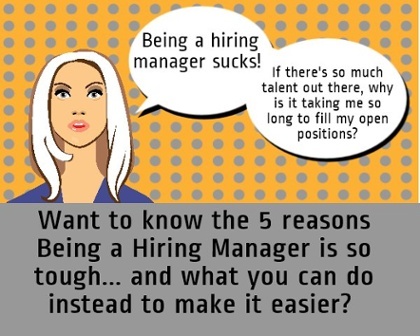 In just a few short years the war for talent has done a complete 180. In the past, hourly employees could quit a job and be hired somewhere else two hours later; recruiters were offering sign-on bonuses; and everyone was talking about how there wasn’t enough talent out there. It was a sellers’ market!
In just a few short years the war for talent has done a complete 180. In the past, hourly employees could quit a job and be hired somewhere else two hours later; recruiters were offering sign-on bonuses; and everyone was talking about how there wasn’t enough talent out there. It was a sellers’ market!
So, what’s the difference today? First of all, it’s not a sellers’ market anymore—business have a wealth of candidates to choose from. Even with the current unemployment rate at 7.3% business owners and hiring managers aren’t filling their open positions because they are unsatisfied with the candidates. A report last year from McKinsey Global Institute found that when U.S. unemployment was more than 9%, 30% of U.S. companies surveyed had positions open for more than six months that they couldn’t fill.
Similarly, PricewaterhouseCoopers’ annual Global CEO Survey of more than 1,200 CEOs found that 24% were “forced to delay or cancel a strategic initiative,” and approximately 30% “couldn’t innovate effectively or pursue a market opportunity” because of talent constraints.
And a study by the Economist Intelligence Unit found that 66% of multinational companies surveyed said “talent shortages are likely to affect their bottom line in the next five years.”
The challenge of finding the RIGHT employee falls squarely on the hiring manager and we understand this is not an easy task. As hiring manger, here are the 5 reasons your job sucks (and what you should do differently):
- You have unrealistic expectations. Everyone wants a rock star, but nobody wants to pay for one! In order to truly find the RIGHT candidate, you have to really think through what you’re looking for in relation to what you can afford (or are willing to pay). Say your sales team has been under performing year after year, but you’re not lacking inbound leads you don’t need to find a super star with his own book of business, you just need someone that is hard-working, engaged, and passionate enough to close the deals on a consistent basis.
- You look at hiring as an “event” and not a process. It’s not always about filling a gap. Rather than operating in survival-mode (hiring to solve a problem), think about the long-term—knowing the type of person that fits your company and excels within it will help build and grow your team and business on a consistent basis.
- The decision makers are not on the same page. You might think relationship building is most important, but your boss only cares about closing rates. It’s important to flush out these details so a proper job description can be crafted—without one, you’ll never be able to find the RIGHT person.
- You hire based mostly on experience. You might think it’s not even worth considering a candidate unless she has X amount of years’ experience in your industry, but how will you know if she meets any of your other criteria (culture fit, mindset, heart, hustle, humility, etc.) if you don’t at least look at her?
- You don’t have an on-boarding process. Once you hire the candidate, he or she will hit the ground running… right? No! In today’s complex business world, an on-boarding process is key not only to ensuring early success, but also in retaining successful employees.
Finding the RIGHT candidate is not easy, you can’t just read a few resumes and pick the one that meets your job requirements. In fact, Monster.com published an article recently stating that when the same job ad was posted two years ago it elicited 156 resumes, and today it generated 8,600 responses.
So, even with a surplus of potential employees, finding the RIGHT employee is still every bit as challenging as it was a few years ago. You have to think strategically about what you want, when you need it (or will need it), and plan for the future success of your employees.







